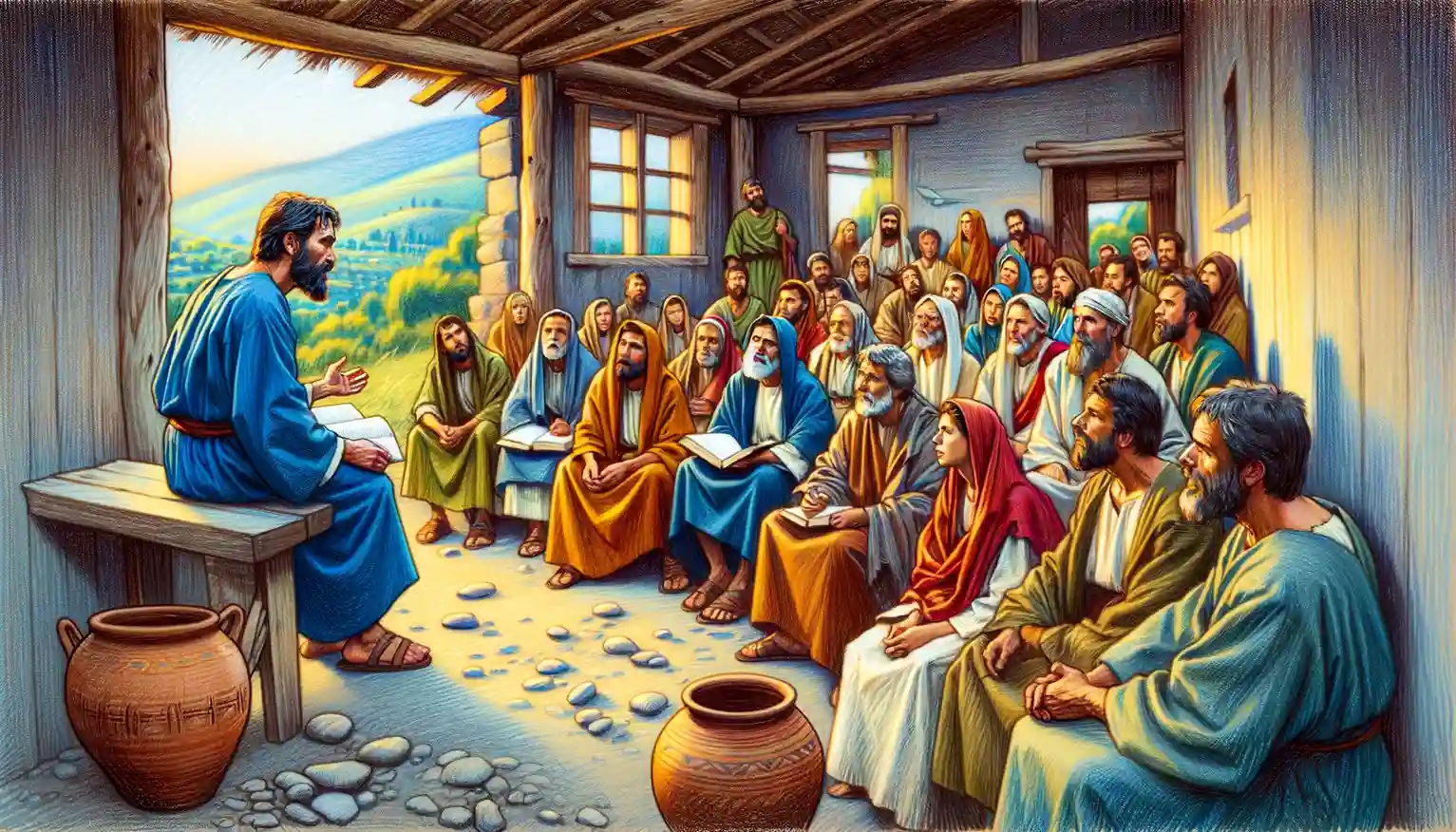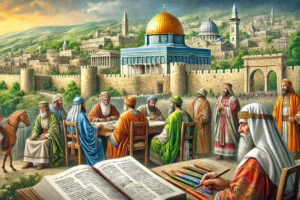
Thessalonians: Resilience and Revelation in Early Christianity
The Thessalonians were the members of the early Christian church in Thessalonica, a prominent city of Macedonia in the Roman Empire. This church is notably addressed in the New Testament through two epistles, First and Second Thessalonians, attributed to the Apostle Paul. Here are some quick facts about the church and its members:
- Founding: The church was established by Paul during his second missionary journey around AD 50, following his preaching in the local synagogue.
- Composition: The congregation was primarily Gentile, but also included some Jewish Christians, reflecting the city’s diverse population.
- Challenges: The Thessalonian Christians faced significant opposition and persecution from both local Jews and pagan Greeks, which is reflected in Paul’s letters.
- Paul’s Letters: First Thessalonians, one of the earliest New Testament writings, focuses on encouraging the believers amid persecution and instructing them on Christian living. Second Thessalonians addresses concerns about the Day of the Lord, clarifying misunderstandings and exhorting the church to remain steadfast.
- Eschatological Themes: Both letters are rich in eschatological (end times) teaching, emphasizing the return of Jesus Christ and the need for vigilance and holiness.
- Legacy: These letters highlight early Christian expectations of Christ’s imminent return and serve as a testament to the faith and resilience of the early church in facing adversity.
Historical and Cultural Context
Thessalonica was a major port city on the Thermaic Gulf, strategically located along the Via Egnatia, the Roman Empire’s main east-west road. Its status as a free city with its own government allowed it a significant degree of autonomy under Roman rule. This diverse setting included Greeks, Romans, and a sizeable Jewish community, which influenced the religious and cultural dynamics encountered by early Christian missionaries like Paul.
Founding of the Church
According to Acts 17, Paul founded the church in Thessalonica on his second missionary journey, but his stay was cut short by Jewish opposition. Despite his brief time there, his message took root quickly, leading to the formation of a primarily Gentile Christian community that also included some Jews. The rapid growth of the church amid a predominantly pagan society set the stage for both internal challenges and external persecution.
Challenges and Persecution
The new believers in Thessalonica faced immediate hostility. The local Jewish leaders, feeling threatened by the spread of Christianity and its implications for their authority and traditions, incited mobs to oppose Paul and his companions. This hostility is a backdrop to the themes addressed in Paul’s letters to the church, particularly the encouragement to endure and the clarification of Christian doctrines.
Paul’s Epistles to the Thessalonians
Paul wrote First Thessalonians shortly after his departure from the city, around AD 51, making it one of the earliest New Testament texts. The letter offers commendations for the church’s faith, love, and hope in the face of persecution, and it instructs on practical matters of Christian living and community relations.
Second Thessalonians was penned shortly thereafter in response to ongoing issues within the church, including confusion about the end times. Key themes include:
- Encouragement and Endurance: Paul encourages the Thessalonians to persevere through persecution and trials, emphasizing the justice of God and the ultimate vindication of believers.
- Eschatological Clarification: Both epistles address misunderstandings about the Day of the Lord. Paul corrects idleness and speculation about Christ’s return, urging continued vigilance and industriousness.
- Ethical Instructions: Paul provides specific guidelines on how to live in anticipation of Christ’s return, emphasizing a work ethic and moral purity.
Theological Significance
The letters to the Thessalonians are pivotal for understanding early Christian eschatology. They articulate a clear expectation of Christ’s imminent return and the need for ethical behavior in light of this belief. The balance of imminent expectation with a call for ongoing, normal life duties provides a foundational perspective for Christian eschatological thought.
Impact and Legacy
The Thessalonians’ response to Paul’s teaching, amidst external threats and internal challenges, underscores the resilience and commitment of early Christian communities. These epistles have continued to influence Christian thought on perseverance, community ethics, and eschatological hope.
The enduring message from the Thessalonian church highlights the interplay between doctrinal clarity, ethical living, and hopeful anticipation in Christian life, which remains relevant in contemporary Christian discourse.



